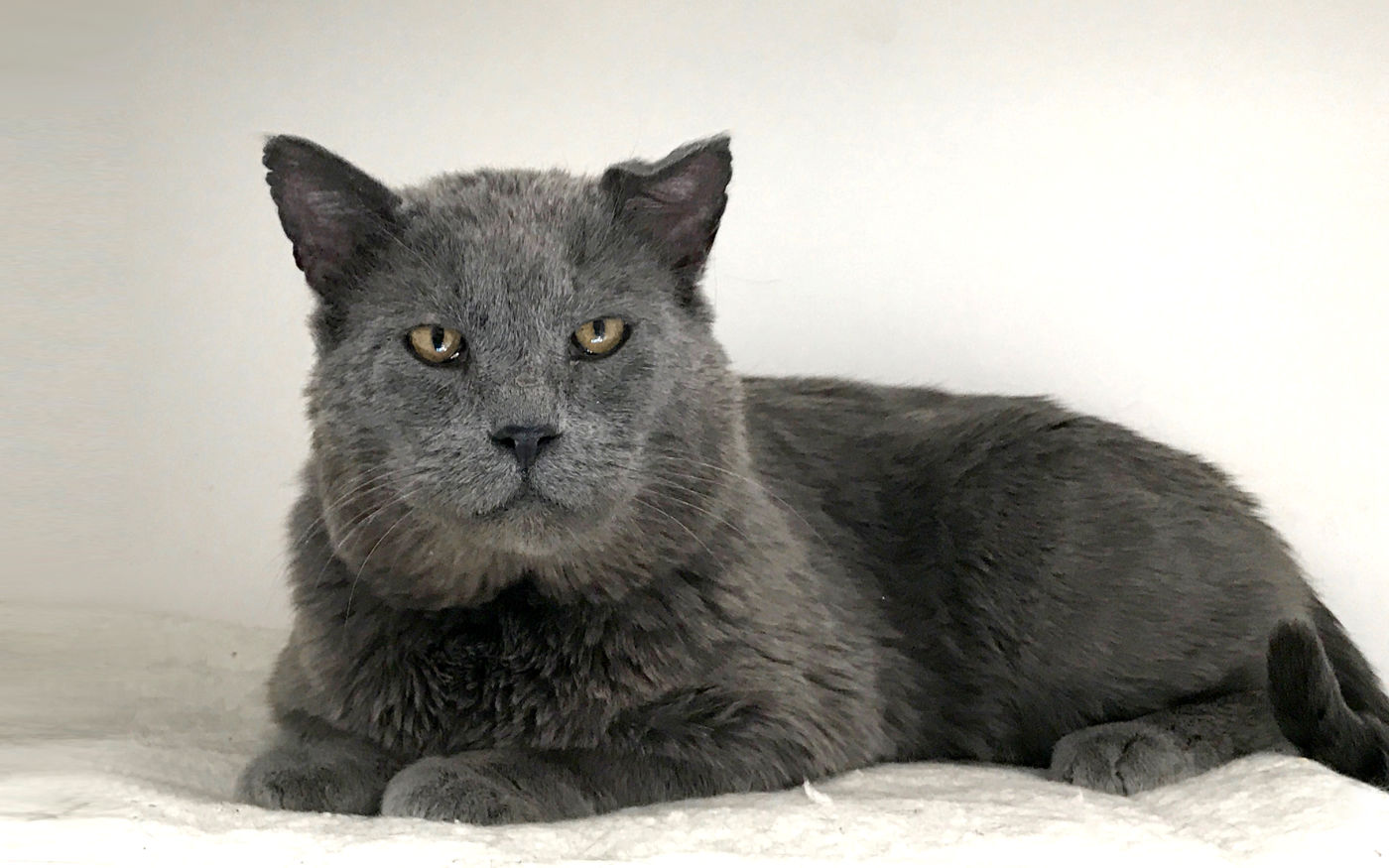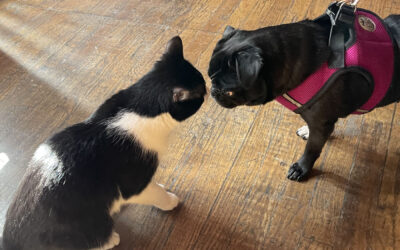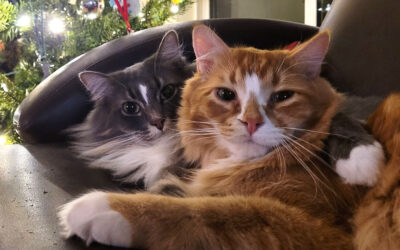
FIV stands for Feline Immunodeficiency Virus. This is a disease that’s almost always found in outside cats who aren’t neutered or spayed.
Picture this. You’re a cute little boy kitten, rambunctious and playful. For whatever reason, you play too hard, you don’t “get along” with the other cats or dogs, you go outside the box because someone chases you away, so you end up outside, fending for yourself.
 Your hormones kick in. Intact male cats are hardwired to procreate, just like intact females. It’s not exactly a love story, as there isn’t a lot of consent involved with everyone compelled to mate over and over until the females get pregnant.
Your hormones kick in. Intact male cats are hardwired to procreate, just like intact females. It’s not exactly a love story, as there isn’t a lot of consent involved with everyone compelled to mate over and over until the females get pregnant.
An intact male will be forced by his hormones to travel up to 3 square miles if he scents an intact female; he has no choice. Neither does he always choose the fights that arise from having many intact males vying for females, or the abuse they both can receive from humans who don’t like their behavior.
Keep in mind that most of this is perfectly preventable with neutering or spaying, as most fixed cats don’t act like this once those hormones go away.
FIV is transmitted through mating and deep wounds, both of which are likely to happen with this less-than-pretty process, both to males and to females. While occasional fighting may occur with neutered cats, it’s nothing like that of intact cats who are competing for resources, whether food or mating partners.
 So here you are, a young male cat, showing up in line for an intact lady cat. You’re very likely to get beat up in the process, even if you are a scrapper, like little Rambo here. If you’re not, you’re even more likely to get FIV from losing those battles.
So here you are, a young male cat, showing up in line for an intact lady cat. You’re very likely to get beat up in the process, even if you are a scrapper, like little Rambo here. If you’re not, you’re even more likely to get FIV from losing those battles.
That’s the bad news. The good news is that recent research tells us cats without symptoms who are positive for this virus have just as good a chance of living the same number of years as non-FIV cats, especially with good veterinary care.
If the cat is one of the sweet ones who got beat up getting the disease, as most of them are, it’s also been proven that they can live happily with other cats and not transmit the disease, unless there’s serious fighting in the home.
 Because of this, we are taking in FIV+ cats as we have room for them. As best we can, we will also test for temperament to see if they are cats we can recommend as getting along with other cats.
Because of this, we are taking in FIV+ cats as we have room for them. As best we can, we will also test for temperament to see if they are cats we can recommend as getting along with other cats.
Most vets will recommend twice yearly checkups to make sure they are in good health, with special attention paid to dental issues and quickly treating any infections, as their immune systems don’t work quite as well as their non-FIV friends. They also recommend annual testing of any cats housed with an FIV+ cat to be sure about their status too.
We think you’ll find our FIV+ cats are some of the most lovable and sweet cats in the world!




